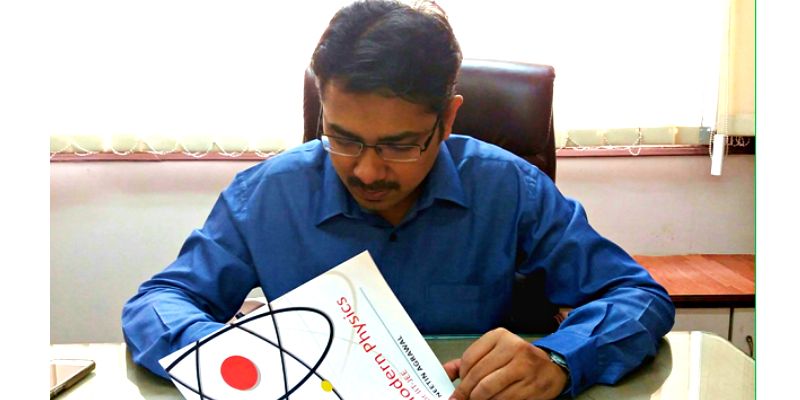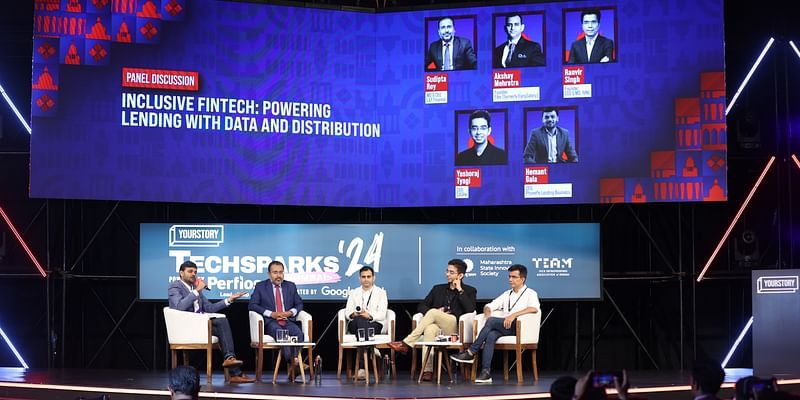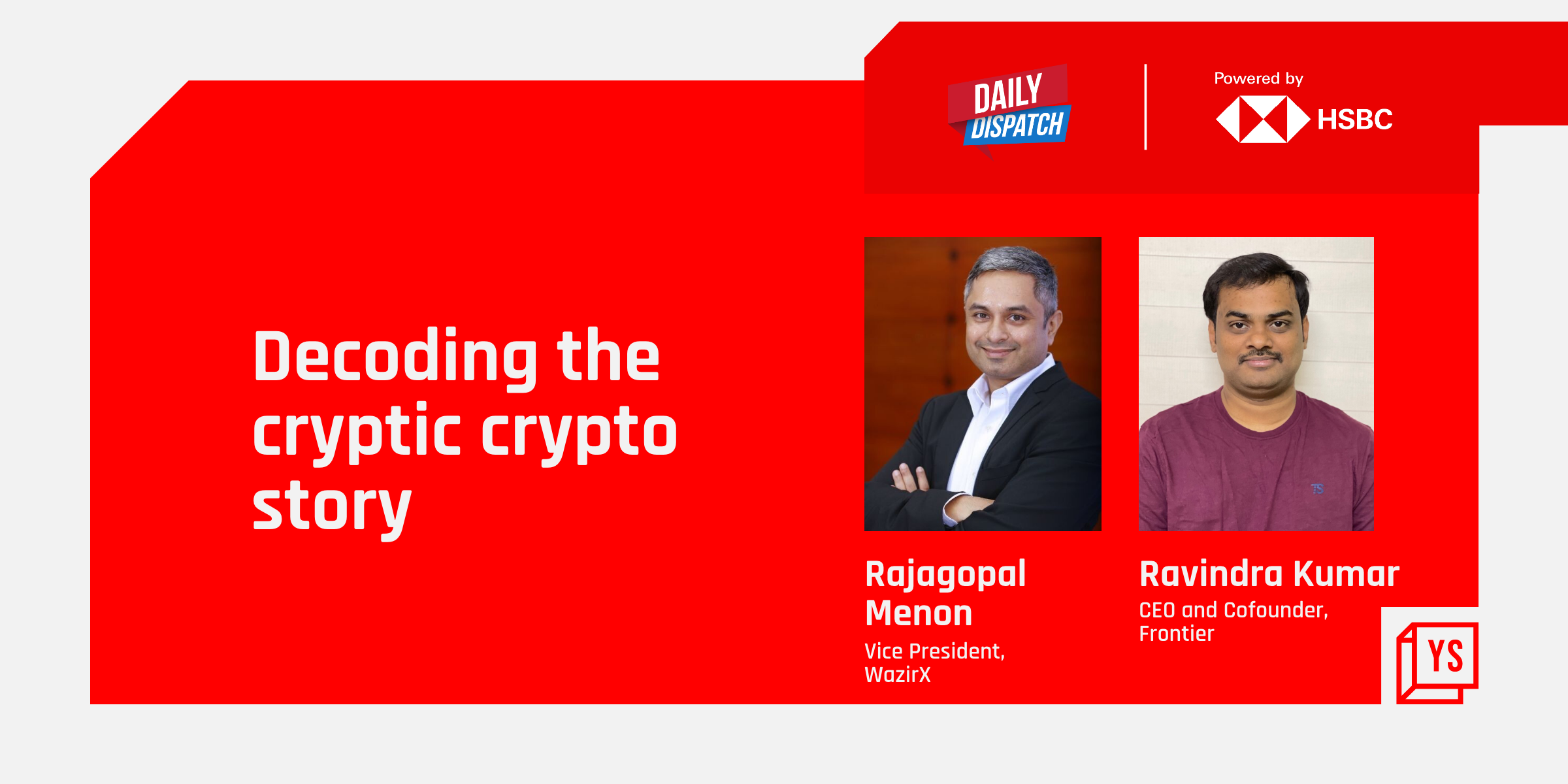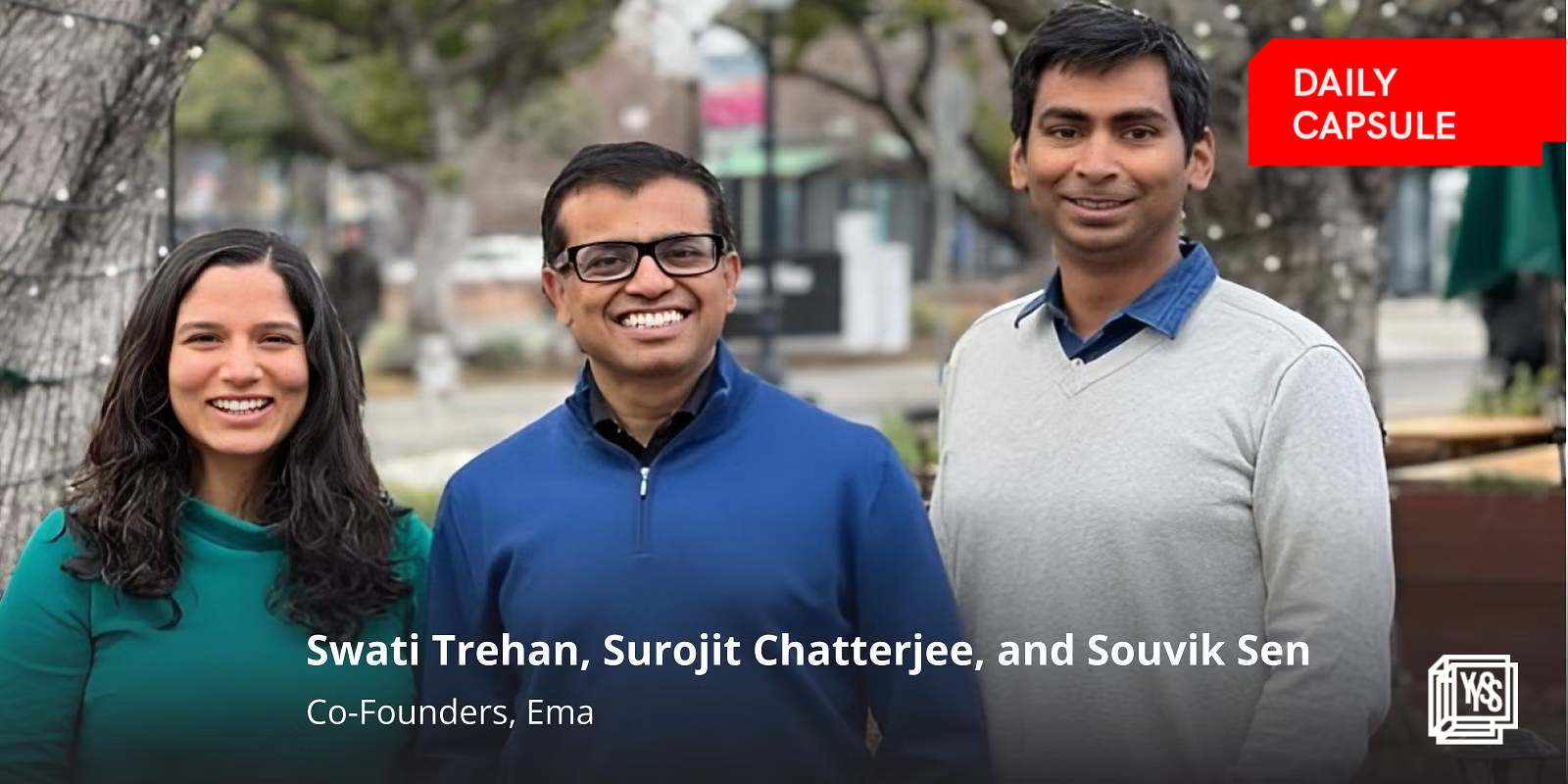How Surat-based Dronstudy is helping visually impaired, female, and marginalised students
After three attempts, Neetin Agarwal created a one-stop repository of online and offline audio-visual educational content to enrich the learning journeys of lakhs of urban and rural students.
When one thinks up ambitious schemes like education and opportunities for all, one seldom engineers nuanced plans so as to include those inhabiting hostile geographies and more hostile bodies — girls with the will but not the way, or boys with the skill but not the guidance. Surat-based edutech startup Dronstudy however, thought of their needs first and built a sincere foundation to create a repository of online and offline audio-visual educational content to enrich the learning journeys of lakhs of urban and rural students.

The genesis
Thirty-two-year-old Neetin Agrawal holds a B.Tech from IIT Madras. He started his career at Texas Instruments in Bengaluru in 2008, where he was doing great — publishing papers and patents, and receiving a 70 percent salary hike even during the recession. “But nights were sleepless and weekends were restless. I wanted to do something big. At that time, there was no startup ecosystem in Bengaluru,” he recalls.
Disrupting the education system came to mind, and while he was willing to set the ball rolling right then and there, his father advised him to first garner some experience in the education industry. So, he went to Kota and started working as an IIT-JEE physics teacher at a ‘Bansal Classes’ there, at a third of his previous salary.
“People, including the owners of Bansal Classes, thought I was a fool, but for me, the decision was quick and simple.”
Pivoting in career as well as company
The real challenge for him struck only when he started teaching there, as he had to face 300-400 students in a class. In such a huge class, teachers cannot allow students to ask doubts; rather, they must anticipate those doubts and teach in a manner that covers them all in the first place.
"For six months, I lived alone even after being married so that I could work harder to teach properly. Believe me, teaching physics for JEE at Kota is absolutely different compared to schools or coaching elsewhere in the country.”
The hard work paid off, and in a few years, his yearly salary reached around Rs 1 crore. “But once again, nights were sleepless and weekends were restless. This money was not giving me happiness, and I wanted to do something really big. It was then that I left my job once and for all.”
The idea of blending education and technology was on his mind ever since he was in Bengaluru. “While teaching, I noticed how Indian parents and students are not always able to reach quality teachers. Either there are no quality teachers nearby or they are too expensive. So, the idea is to bring quality teachers to the doorstep of students at an affordable cost. We tried different business models to connect teachers and students, and had to pivot a few times,” he explains.
Getting the right market fit has been a pressing issue for Surat-based Dronstudy — a play on the words 'Dronacharya', one of the most famed teachers in Hindu mythology, and 'study'. In fact, at one point, they were doing online tutoring somewhat akin to Vedantu’s model, but were able to introduce some unique features and offer up their services at one-fourth of the cost of even heavily funded competitors. However, when they saw the opportunity in the audio and video segment, they decided to migrate fully to that model. “Closing that segment was tough, and it involved layoffs and a lot of restructuring,” Neetin recounts.
Rebuilding the team and setting the prices in a highly price-sensitive market were some of the other challenges he grappled with.
Strike two
Headquartered in Surat, Dronstudy then evolved into adopting a marketplace model, wherein they collaborate with good teachers, help them record their audio and video lectures, and then sell those courses on dronstudy.com for offline and online use by students, “In some cases, we also add standardised booklets, test-series and so on to the course if needed to provide complete solutions to the student. The money received from sales is split between the teacher and Dronstudy,” Neetin explains.
For offline use, the student must buy the courses, which are loaded on a pen drive or SD card and shipped to their address. For online use, the format is like udemy.com, where videos and study materials are streamed through the website.
They are currently targeting students from class 8 to class 12, and aspirants of the IIT-JEE, AIPMT, CA/CS/CMA, Bank-PO and SSC examinations but the plan is to go both higher and lower. Their team is currently 15 members strong.
Dronstudy’s favourite moments
People from both urban and rural India are using their products. One such user is Om Pandey, a student hailing from an extremely remote part of Chhattisgarh, where there are no schools or railway stations within a 50 km radius, and no roads leading to his home. Using Dronstudy’s courses, however, Om topped the International Science Olympiad.
Another benefit of their course being audio-enabled is that they are immensely useful to the visually impaired, who lack access to good teachers and trainers. One such case is that of half-blind Ramandeep, who uses their courses to prepare for his IIT-JEE. There are also instances of girls in Bihar, who are forbidden to go out after dark for classes due to security reasons, who have found a satisfactory substitute in Dronstudy’s study material.
“Though the business is scalable, in the initial stages, before forming an association with teachers, I made my own courses, which helped. And for acquiring users initially, we offered a lot of things for free as well,” he reveals.
Droning the market
Dronstudy has worked with 60 teachers to create over 15,000 hours of video tutorials and over one lakh questions and answers, which are being used by more than four lakh students per month. As of now, Dronstudy is catering to around 1,500 towns and villages from across India and the Middle East. Having said that, Neetin reveals that, as they are bootstrapped, they are deploying all their revenues towards expansion. They are, therefore, not recording profits per se at this stage. “I was fortunate with my salaries, so I could do this. Soon, we will be approaching VCs,” he states.
Speaking only about India, they are poised to create value for 60 crore aspirants under the age of 25. “We can target people from 10 years to 25 years of age, roughly. With a ticket size of say Rs 10,000 per student, it’s more than a $100-billion market. At least 30 percent of it is addressable,” he explains.
While they are in a space that has fixtures like Byju’s in it, they hope to take the established players on through differentiation. Going ahead, they want to associate with more teachers to reach more geographies and students.
“We also need to be more aggressive in marketing to scale up faster. In the next four to five years, we want to be the Google of education. Dronstudy should be the first choice of every child and parent in the country.”











